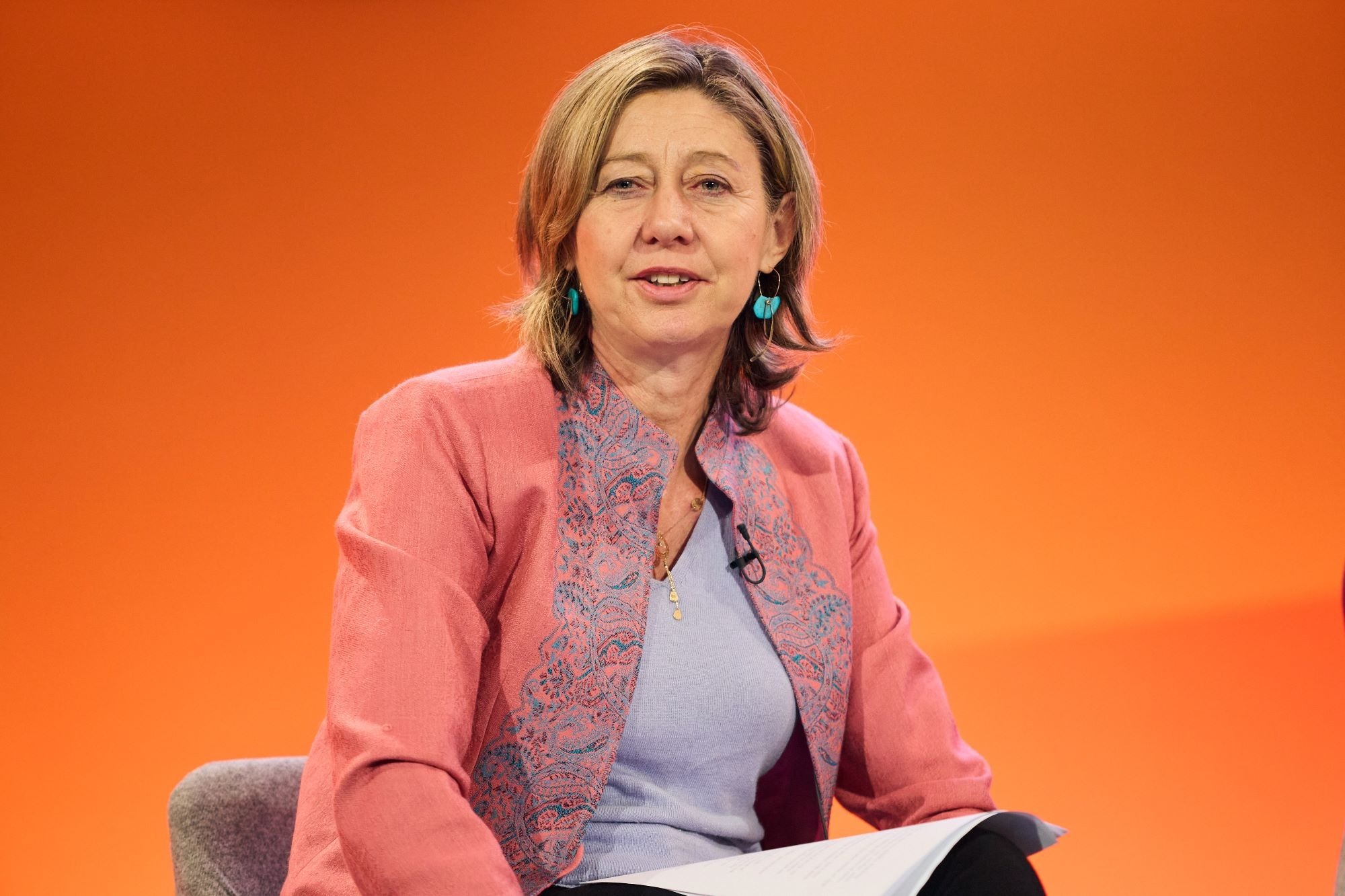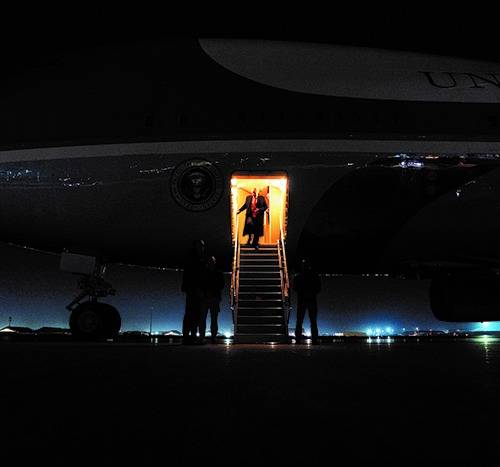
HowTheLightGetsIn is the world’s largest ideas and music festival, taking place from 24-27 May in Hay-on-Wye. As a long-standing festival partner, we’ve curated a series of interviews and articles with some of the fascinating expert speakers. To read more on the rise of geopolitical conflict and decline of liberalism, check out our interview with political philosopher John Ralston Saul.
We’re also offering an exclusive 20% discount on tickets to all of our readers, with the code NEWHUM24. Don't miss out on discounted tickets here.
Christina Lamb is chief foreign correspondent of the Sunday Times and a bestselling author of books including "Our Bodies, Their Battlefield: What War Does To Women" and "The Girl from Aleppo". She will be speaking at HowTheLightGetsIn 2024 on "Navigating the new world order".
Your panel is about the shift from a unipolar to a multipolar world and the dangers that come with that. You've reported globally throughout that shift. How have you seen it play out?
When I started out, which was the late 80s, it was a very different world. It was the end of the Cold War, the Berlin Wall was just coming down, lots of dictatorships in Latin America had just ended, Apartheid was ending in South Africa. So it felt like everything was going in a good direction. Of course, there were bad things happening still but the general direction was towards more democracy, more freedom of expression, freedom of press. And it was a world where there was one superpower basically, which was United States.
Of course things are very different now because we're very much in a multipolar world. The United States no longer has that hegemony. We see that play out very much in the war in Ukraine, where I think the United States and the west in general expected a lot of countries to support them that didn't. There's a feeling of not wanting to be taken for granted anymore in a lot of those countries that might have old colonial relations, or trade or aid relations, but we're also seeing new players emerge. Not only do you have China and Russia as powers vying in many places – even in very remote parts of Africa I see Chinese projects – but also regional blocs, so Turkey, India, South Africa, Brazil. It's a very different world.
Is this new world inclined towards more conflict and division?
According to United Nations there is more conflict than at any time since the Second World War. I certainly don't remember a time like this. There's so many wars going on and a lot of them unfortunately get forgotten because there's so much focus on Ukraine. I never imagined that I would see a land war in Europe...
It is a much more complicated situation [than two decades ago] and at the same time we're seeing more and more authoritarianism. Every year for the last 10 years, the indices have gone in the wrong direction and we're seeing less freedom of press, of expression, more authoritarian regimes and more populist leaders. Even in some of the world's biggest democracies we've seen that you can't take democracy for granted anymore.
There's been criticism of the media for giving more attention to some of those conflicts at the expense of others. Why does that happen and what are the consequences?
It's something that worries me and it's not just the media. It's also international leadership. We are in a moment of great complexity ... but it's also at a time where we have probably the worst international leadership that I remember ... [which] just doesn't seem to have the bandwidth to deal with more than one or two conflicts at a time.
The fact is we have limited resources in the media. Of course, in Europe, Ukraine has really dominated the news because ... it's very near and it feels to people that if Putin is not defeated there that he will then move westwards. So of course, you're going to be more interested in something that seems to affect you more directly...
And we have limited numbers of people, we have limited space. At the Sunday Times 10 years ago, we used to have 10 pages of foreign news, now we have two or three ... We also have far fewer correspondents. Sometimes people think there's some kind of conspiracy that we're deliberately not covering certain things, maybe because of the colour of people's skin or their ethnicity. Honestly, it's not that ... Most of us are very conscious that there are other things going on.
A place that is extremely close to my heart is Afghanistan. It's almost three years since the Taliban took over, and when they started all these terrible restrictions on girls and women, there was international outrage ... Now, I fear that people have moved on.
Is there a challenge with so many conflicts going on in the world that there's a limit to readers' attention or capacity to absorb it all?
I often worry that it's not just the number of conflicts [but also that] these are terrible stories. We're talking about atrocities, women and children being killed, rape, torture, horrendous things that are happening.
And after a while, it's too much for people. I think that people become inured to it. I grew up at a time where there was a lot of peace, so when these things happened, it was really shocking. Now, these things are happening all the time...
So I always try, and always have tried, to find positive stories in these bad places ... You always find people doing remarkable things. It may be on a very small scale, but you always find people that are somehow trying to keep life together.
You've written a book about the impact of war on women. If we are living through a period of increased conflict and division, what does that mean for women?
Unfortunately, as we see over and over again, women and children are the main victims ... One of the ways war has changed is that in most of these conflicts we're covering now, the majority of victims are civilians. Whereas, if you go back to the First World War or some of these big wars between states, the majority of victims were soldiers. But now, these wars are often fought in civilian areas, they might not be between armies, they might be between terrorist or militia groups. Also the kind of weaponry that is being used – airstrikes, drones, things like that – means that a lot of civilians are being killed...
There's also this dark side of sexual violence against women and girls, which unfortunately seems to just go up and up ... People often ask me "why is there so much rape in war?" And partly, it's because it's cheap. As one militia man said to me: "It's cheaper than a Kalashnikov bullet". It's effective, if you want to drive people out of an area and terrorise them. But nobody pays for it, except for the victims – the perpetrators almost always go free. Accountability is the exception, not the rule ... I wrote this book [about sexual violence in conflict] which came out four years ago and I've had to update it twice already because it's happening so much...
Sadly, we're [also] at a time with very few women in leadership ... There isn't a single peace process led by a woman. Most peace processes don't even have women sitting round the table. And I think that makes a difference because those people who are trying to negotiate an end to a conflict are not really thinking about what's happening to the women.
In the context of all of this, how significant is the outcome of this year's US election?
Massive. It's the dark cloud hanging over everything. First of all, with Ukraine, it's quite clear that Putin is waiting for that. That's why it's so important that Europe really steps up and gives Ukraine what it needs to actually win the war...
If you have somebody in the White House who thinks it's perfectly OK to have thugs invading Congress, who thinks it's OK to speak of women the way he does, to trample over people's rights, that sets such a bad example for the rest of the world.
Don’t miss out on Christina Lamb's full talk at HowTheLightGetsIn on 26 May at 10.30am. Get your special offer of 20% off full tickets using the discount code NEWHUM24 when prompted.
In the meantime, check out previous festival debates and talks on IAI.TV to get excited for the big event.


